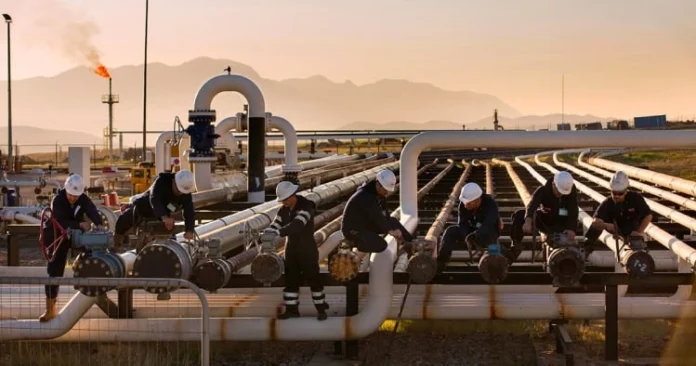The conflict between Israel and Palestine may further strain global oil and gas supplies already impacted by the Russian-Ukrainian war, experts warn.
The prices of crude oil have increased slightly due to the conflict that arose from the attack launched by the Palestinian resistance movement on the Zionist entity on October 7th. Currently, the prices are hovering around $90 per barrel, which is still below their historical levels.
According to UniCredit Bank analyst Eduardo Campanella, the Gaza Strip lacks major international oil infrastructure, and the state of Israel is not a significant oil producer.
Investors are staying cautious due to the inherent risks in the Middle East for global supplies, says SBIM analyst Stephen Innes.
One of the main risks to the energy market is Iran’s direct intervention in support of the Palestinian resistance movement, which is a sworn enemy of Israel.
Iran, a member of the Organization of the Petroleum Exporting Countries (OPEC), has faced a significant decline in production and exports due to years of international sanctions. However, over the past year, its production has increased, and it is suspected of engaging in oil smuggling to the market, as reported by AFP.
According to Helge Andre Martinsen, an analyst at DNB, the flow of oil has been crucial in keeping prices under control despite high demand and low supply. Martinsen also suggests that this is the reason why the US administration, under President Joe Biden, has chosen to ignore the issue.
According to Eduardo Campanella, if Tehran remains neutral, the Western powers may choose to either tighten or more effectively enforce existing sanctions.
Tehran has the option to retaliate by blocking the Strait of Hormuz, which is the world’s most crucial oil transit area. This area facilitates the transport of over 17 million barrels of oil per day, representing approximately 30% of the world’s oil transported by sea, according to SIP Research.
Campanella mentioned that only Saudi Arabia and the UAE possess pipelines to export crude oil from the Gulf, bypassing the Strait of Hormuz.
According to experts, there have been two major oil shocks in history. The first occurred fifty years ago during the October 1973 War, when OPEC imposed an embargo on the allies of Israel. The second shock happened in 1979, following the Iranian Revolution. As a result, crude oil prices spiked within a few months, which led to a weakened economy for advanced nations.
The impact of the attack on gas prices seems to be more immediate. In mid-October, the price of gas on the Dutch gas futures trading platform (TTF), which is considered the benchmark for natural gas in Europe, increased by one-third compared to its pre-attack level on October 7th.
Stephen Innes believes the regional natural gas market is seriously threatened by the war and LNG supplies could be impacted.
In contrast to the previous statement, Giovanni Stanovo from UBS warns that even though European stocks are almost full, they will not be enough to sustain the winter if imports come to a halt.
Meanwhile, Chevron suspended its activities in the Tamar platform off Israel’s coast based on government instructions.
This field represents about 1.5% of the world’s liquefied natural gas supply. It mainly serves the internal market, as well as Egypt and Jordan.
Analysts warn that if the Leviathan field, the largest gas field in Israel, is shut down, it could have serious consequences. They point to the record high price of 345 euros per megawatt-hour at the start of the Ukraine war as an example of what could happen.





